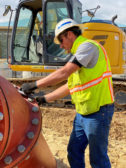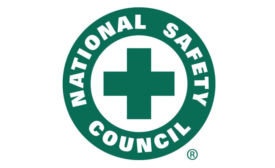Home » wearables
Articles Tagged with ''wearables''
Blackline Safety, NevadaNano partner for combustible gas detection innovation
Blackline adds cutting-edge MPSTM Flammable Gas Sensor technology to its lineup of cloud-connected G7 wearables
June 25, 2020
$500K grant to help NSC speed adoption of workplace safety tech
Work to Zero initiative helps employers understand, embrace life-saving safety innovations
January 14, 2020
Getting ‘smart’ about construction safety
Wearable sensors could monitor stress, physical demands and even risk perception
May 27, 2019
Become a Leader in Safety Culture
Build your knowledge with ISHN, covering key safety, health and industrial hygiene news, products, and trends.
JOIN TODAYCopyright ©2025. All Rights Reserved BNP Media.
Design, CMS, Hosting & Web Development :: ePublishing







